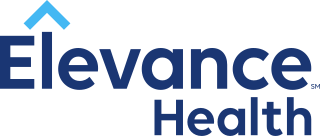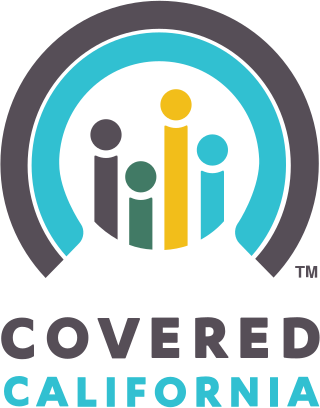Health insurance or medical insurance is a type of insurance that covers the whole or a part of the risk of a person incurring medical expenses. As with other types of insurance, risk is shared among many individuals. By estimating the overall risk of health risk and health system expenses over the risk pool, an insurer can develop a routine finance structure, such as a monthly premium or payroll tax, to provide the money to pay for the health care benefits specified in the insurance agreement. The benefit is administered by a central organization, such as a government agency, private business, or not-for-profit entity.
The term managed care or managed healthcare is used in the United States to describe a group of activities intended to reduce the cost of providing health care and providing American health insurance while improving the quality of that care. It has become the predominant system of delivering and receiving American health care since its implementation in the early 1980s, and has been largely unaffected by the Affordable Care Act of 2010.
...intended to reduce unnecessary health care costs through a variety of mechanisms, including: economic incentives for physicians and patients to select less costly forms of care; programs for reviewing the medical necessity of specific services; increased beneficiary cost sharing; controls on inpatient admissions and lengths of stay; the establishment of cost-sharing incentives for outpatient surgery; selective contracting with health care providers; and the intensive management of high-cost health care cases. The programs may be provided in a variety of settings, such as Health Maintenance Organizations and Preferred Provider Organizations.
In U.S. health insurance, a preferred provider organization (PPO), sometimes referred to as a participating provider organization or preferred provider option, is a managed care organization of medical doctors, hospitals, and other health care providers who have agreed with an insurer or a third-party administrator to provide health care at reduced rates to the insurer's or administrator's clients.

Highmark is an American for-profit healthcare company and Integrated Delivery Network based in Pittsburgh, Pennsylvania, United States. It is a large individual for-profit health insurer in the United States, which operates several for-profit subsidiaries.

Blue Cross Blue Shield Association, also known as BCBS, BCBSA, or The Blues, is a United States–based federation with 33 independent and locally operated BCBSA companies that provide health insurance to more than 115 million people in the U.S. as of 2022.

The Massachusetts health care reform, commonly referred to as Romneycare, was a healthcare reform law passed in 2006 and signed into law by Governor Mitt Romney with the aim of providing health insurance to nearly all of the residents of the Commonwealth of Massachusetts.
Medical underwriting is a health insurance term referring to the use of medical or health information in the evaluation of an applicant for coverage, typically for life or health insurance. As part of the underwriting process, an individual's health information may be used in making two decisions: whether to offer or deny coverage and what premium rate to set for the policy. The two most common methods of medical underwriting are known as moratorium underwriting, a relatively simple process, and full medical underwriting, a more indepth analysis of a client's health information. The use of medical underwriting may be restricted by law in certain insurance markets. If allowed, the criteria used should be objective, clearly related to the likely cost of providing coverage, practical to administer, consistent with applicable law, and designed to protect the long-term viability of the insurance system.
Health Care Service Corporation, a Mutual Legal Reserve Company, (HCSC) is a member-owned health insurance company in the United States. HCSC was formerly known as Hospital Service Corporation and changed its name to Health Care Service Corporation in 1975. The company was founded in 1936 and is based in Chicago, Illinois with a network of offices in the United States. Health Care Service Corporation is the licensee of the Blue Cross and Blue Shield Association for five states. It concentrates its operations in Illinois, Montana, New Mexico, Oklahoma, and Texas.
In the United States, health insurance helps pay for medical expenses through privately purchased insurance, social insurance, or a social welfare program funded by the government. Synonyms for this usage include "health coverage", "health care coverage", and "health benefits". In a more technical sense, the term "health insurance" is used to describe any form of insurance providing protection against the costs of medical services. This usage includes both private insurance programs and social insurance programs such as Medicare, which pools resources and spreads the financial risk associated with major medical expenses across the entire population to protect everyone, as well as social welfare programs like Medicaid and the Children's Health Insurance Program, which both provide assistance to people who cannot afford health coverage.
In the United States, health insurance marketplaces, also called health exchanges, are organizations in each state through which people can purchase health insurance. People can purchase health insurance that complies with the Patient Protection and Affordable Care Act at ACA health exchanges, where they can choose from a range of government-regulated and standardized health care plans offered by the insurers participating in the exchange.

Mary E. Kramer is an American former politician. A member of the Republican Party, she served as an Iowa State Senator from 1990 to 2003. She was elected President of the Senate in 1997, becoming the first independently elected woman to fill the post. In 2003 Kramer was nominated by President George W. Bush to serve as U.S. Ambassador to Barbados and the Eastern Caribbean; she was confirmed by the United States Senate and served from 2004 to 2006.

The Affordable Care Act (ACA), formally known as the Patient Protection and Affordable Care Act (PPACA) and informally as Obamacare, is a landmark U.S. federal statute enacted by the 111th United States Congress and signed into law by President Barack Obama on March 23, 2010. Together with the Health Care and Education Reconciliation Act of 2010 amendment, it represents the U.S. healthcare system's most significant regulatory overhaul and expansion of coverage since the enactment of Medicare and Medicaid in 1965. Most of the act's provisions are still in effect.
Blue Cross and Blue Shield of Alabama (BCBSAL) is a nonprofit health insurance company headquartered in Birmingham, Alabama. The company was founded in 1936, provides coverage to more than 3 million people and is a member of the Blue Cross and Blue Shield Association (BCBS). BCBSAL employs nearly 5,000 people, which includes almost 3,500 people at its corporate headquarters in Birmingham. The company also operates Cahaba Government Benefit Administrators and Cahaba Safeguard Administrators, both headquartered in Birmingham. It commands over 90 percent of the health insurance market in Alabama, a state with half a million uninsured people, one of the highest uninsured rates in the nation at 10 percent of the population.
Health insurance costs are a major factor in access to health coverage in the United States. The rising cost of health insurance leads more consumers to go without coverage and increase in insurance cost and accompanying rise in the cost of health care expenses has led health insurers to provide more policies with higher deductibles and other limitations that require the consumer to pay a greater share of the cost themselves.

Elevance Health, Inc. is an American for-profit health insurance provider. Prior to June 2022, Elevance Health was named Anthem, Inc. The company's services include medical, pharmaceutical, dental, behavioral health, long-term care, and disability plans through affiliated companies such as Anthem Blue Cross and Blue Shield, Anthem Blue Cross in California, Wellpoint, and Carelon. It is the largest for-profit managed health care company in the Blue Cross Blue Shield Association. As of 2022, the company had 46.8 million members within its affiliated companies' health plans.

Covered California is the health insurance marketplace in the U.S. state of California established under the federal Patient Protection and Affordable Care Act (ACA). The exchange enables eligible individuals and small businesses to purchase private health insurance coverage at federally subsidized rates. It is administered by an independent agency of the government of California.
The Iowa Employer Benefits Study is an annual survey of Iowa employers conducted to determine the types and amounts of employee benefits offered by organizations in Iowa. The information collected in this research allows employers to understand the value of their benefit plans compared to state and industry averages. Iowa benefits can also be compared to those offered nationally. The Iowa Employer Benefits Study is recognized to be a trustworthy and credible resource on employee benefits offered in this state.
The Affordable Care Act (ACA) established the health insurance rate review program in order to protect consumers from unreasonable rate increases. Through this program, proposed premium increases in the small group and individual markets that are above a threshold amount are reviewed by states or the federal government to determine whether the increases are reasonable.
This article summarizes healthcare in California.
The Patient Protection and Affordable Care Act, often shortened to the Affordable Care Act (ACA) or nicknamed Obamacare, is a United States federal statute enacted by the 111th United States Congress and signed into law by President Barack Obama on March 23, 2010. Together with the Health Care and Education Reconciliation Act of 2010 amendment, it represents the U.S. healthcare system's most significant regulatory overhaul and expansion of coverage since the passage of Medicare and Medicaid in 1965. Once the law was signed, provisions began taking effect, in a process that continued for years. Some provisions never took effect, while others were deferred for various periods.







